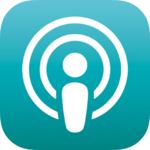Prefer to listen on your app?
VOCABULARY
1. jab (n)
2. demand will outstrip supply (phr)
3. overburdened (adj)
4. over the counter (adj phr)
5. overweight (adj)
Episode 2 transcript
Intro
Hello and welcome to Learn English with the News with me, Karen, a teacher from England.
This podcast is perfect for you if you want to take your vocabulary and pronunciation to a higher level. Each week I bring you real news stories from around the world to help you learn. I will talk about the story and introduce you to five pieces of useful vocabulary in context.
I’ll then discuss the meanings and pronunciation in more detail afterwards. Listen every week and your English will really improve.
This week we are talking about the NHS – the National Health Service of the UK – starting to give medicine to help people lose weight. Many are hopeful, but local chemists and doctors say that they are very busy already and they worry there won’t be enough medicine for everyone.
What will this mean for the health service and the people who need help?
You will find this week’s words in the description of this podcast. And if you want a transcript – that’s all the words I say – you can get one for free on my website. That link is also in the description.
Introducing the vocabulary
Let’s look at the vocabulary before I then tell you about the story using this vocabulary.
And this week we have a word that can be controversial!
Word 1 is jab, and this is an informal word for injection, usually to protect you from illness. Jab.
Number two is a phrase – demand will outstrip supply. This means that more people will want something than there is available.
Okay, what is the word for when you have more work or pressure than you can cope with? You can describe yourself as… overburdened. Overburdened. It’s an adjective. That is word number three.
Vocabulary item four this week is an adjective phrase to describe medicine you can buy in a shop without a prescription from a doctor (a prescription is a written order).
So what do you say if you can buy something without a prescription? You can buy it over the counter. Over the counter.
And the last piece of vocabulary for this week is an adjective that is neutral and often used in medical contexts when you’re trying to say that somebody is bigger or heavier than is healthy for their body.
A ruder word would be fat. The word is overweight.
There’s a lot of ‘over’ words today.
The word is overweight.
Can local chemists cope? Why demand for weight loss injections could put pressure on pharmacies.
The news story
Okay, so the story using the vocabulary. So listen out if you hear the words and expressions.
The NHS is the National Health Service and in England, the NHS has started giving the jab Mounjaro to people who are very overweight. It was first used for type 2 diabetes, but now it can help with weight loss.
From this week, some GPs can give it to people with a BMI over 40. A BMI is a Body Mass Index, and that is the way to measure if somebody is overweight or not. So if they have a BMI over 40 and at least four health problems, they might be able to get this jab.
Around 220,000 people could get it in the first three years.
Many people are excited, but there are also worries. Why? Well, some doctors and pharmacists say demand will outstrip supply, meaning more people will want the jab than there are doses available, so the supply will not be enough for the demand.
GPs are already overburdened and say they need more time, training and support.
GPs are General Practitioners. They are family doctors.
In addition, pharmacy groups think supplies might run low, and that some people may have to go to private clinics or try to get the medicine over the counter instead.
Health experts say this medicine should not be seen as an easy solution. It should be part of a bigger plan that includes healthy eating, exercise, and support over time.
They always say that, don’t they? It is true, I suppose.
They also say we must focus on helping people stay healthy, so fewer people become overweight in the first place.
The jab has helped some people lose over 20% of their body weight, but doctors warn that there are risks. Without proper care and follow-up, people might quickly gain the weight back – so they might get fat again.
In short, the NHS is starting to give out Mounjaro jabs, but it’s important to support GPs and pharmacies, make sure there are enough supplies, and use the medicine as part of a full health plan, not a quick solution.
The vocabulary in depth
Okay, so that was the story. Do feel free to listen to the story again and hear the vocabulary in context.
But now we’re going to go to the very useful stage of recapping the vocabulary and talking about it in more detail to try to really get you to remember it.
The first new piece of vocabulary today was jab, J-A-B, which is a noun. It’s informal and it means an injection, usually to protect you from illness.
It comes from the word to jab, the verb. That means to push something quickly and sharply, often a small pointed object like a finger or a needle. So for example, you might jab someone lightly in the arm to get their attention, and in this case, it would usually mean your finger. You jab them with your finger.
When we use jab to talk about medicine, it refers to the quick, sharp push of a needle when giving an injection or vaccine because the action of giving an injection is like a quick poke or a jab. The noun jab came to mean the injection itself. So the jab you get at the doctor’s is named after the action of jabbing the needle into your skin.
And it’s an informal word, as I said. It’s friendly and it’s often used in everyday British English, especially when talking about vaccinations like the flu jab or COVID jab.
When was the last jab you had and what was it for?
Vocabulary two was demand will outstrip supply, meaning that more people will want something than there is that thing available.
So there will be more people wanting the jab, in this context, than there are jabs available. Demand is the number of people who want something. Outstrip means that it will be more than. And supply in this case is a noun, meaning the amount of something that is available.
Vocabulary item three was overburdened. Overburdened, which is an adjective. We don’t pronounce the letter R in this case, in either part of the word. Over, O-V-E-R, and burdened, B-U-R-D-E-N-E-D. Overburdened. Overburdened means that you have more work or pressure than you can cope with.
Are you overburdened either at work in your studies or at home? I hope not.
Burden is a noun and it means something difficult or worrying that you are responsible for. A burden could be, for example, that you have to look after somebody else’s children, like a babysitter, but without being paid, you have that burden – or dare I say it, looking after elderly parents.
Of course, this can depend on your attitude, whether it’s a duty, a pleasure, or a burden, but some people could say it’s a burden.
Then we have the verb overburden, and I’ll give you an example sentence: “Don’t overburden yourself by taking on a second job.”
And the prefix over, what does the prefix over mean in this case: over overburdened? It means too much, and this prefix can be used with lots of other words as well. For example, overcooked means that you cooked something too much for too long. The world is overpopulated, many people would say. Overpopulated. It has too many people.
And we’ll see another example of this prefix in a minute. Not quite yet, because first we have an adjectival phrase, which is over the counter.
We do have the word over here, but it’s a preposition. So vocabulary item four, over the counter. Counter is spelled C-O-U-N-T-E-R. Over the counter.
This describes medicine that you can buy without a prescription from your doctor, so you can buy it in a shop. “Can I buy it over the counter?” is a question that means “Can I buy it without needing a prescription from my doctor?”
Counter, by the way, of course, refers to the flat surface in a shop or pharmacy, in this case, where customers are served or where goods are sold.
I wonder what the expression is in your language, for over the counter. It might be quite different. I don’t think it translates word for word into any language I know.
And vocabulary item number five, this could be a slightly controversial one – overweight. You have to be careful how you use adjectives to describe people’s weight, don’t you? We all know that. And it can also be quite cultural, what’s considered rude or not.
Overweight is a neutral adjective which describes somebody whose body is heavier than is healthy.
This uses the prefix over again: overweight. It means you are carrying too much weight – you are overweight.
You can also be underweight, of course, and this can also be a severe medical problem.
There are lots of synonyms for overweight. Let’s look at formal or neutral ones first. Then we will look at informal ones and finally rude ones.
So formal or neutral ones: overweight, which we’ve looked at already. You can soften it with a bit, which is a very British thing to do. So, for example, She’s a bit overweight. We use that in all kinds of contexts to make what we are saying less direct and less rude.
Then we have obese, which is a medical term for when you have a lot of extra body fat.
Heavy, which is a gentle way to say someone is fat.
And large is similar.
So: obese, heavy and large.
Okay. Informal words. Some informal words for overweight are chubby – C-H-U-B-B-Y. And this is kind of cute, and it means soft and round. And it’s often used about children. Oh, look at those chubby cheeks. It’s not really offensive but you still need to be a bit careful.
Chunky can be affectionate or teasing. It means you have extra fat around your body. Chunky.
Now the moment you’ve all been waiting for. Or maybe you’re too polite for that! Rude words.
Fat is rude, of course.
Another rude word – lardy. This is a bit comical, a bit humorous. Lardy. He’s a bit lardy.
You see, I said a bit without even thinking! A very English thing to do!
Lard is white fat from a pig used in cooking, so that’s lard. And lardy is L-A-R-D-Y and it’s a rude way to say fat, overweight.
Do you know any other words for overweight? There are more. I can’t deal with them all today, but I wonder if you know any more. You can maybe put them in the comments.
Outro
Don’t forget that today’s key vocabulary is in the description.
And for a full and completely free transcript of today’s podcast episode, visit my website. The link is in the description.
Subscribe to my podcast so you don’t miss an episode and tell a friend about it so I can grow this new podcast and keep on bringing you great content.
Thank you very much for listening to Learn English with the News with me, Karen.
Take care and I’ll see you next week.
Read more about this story:





